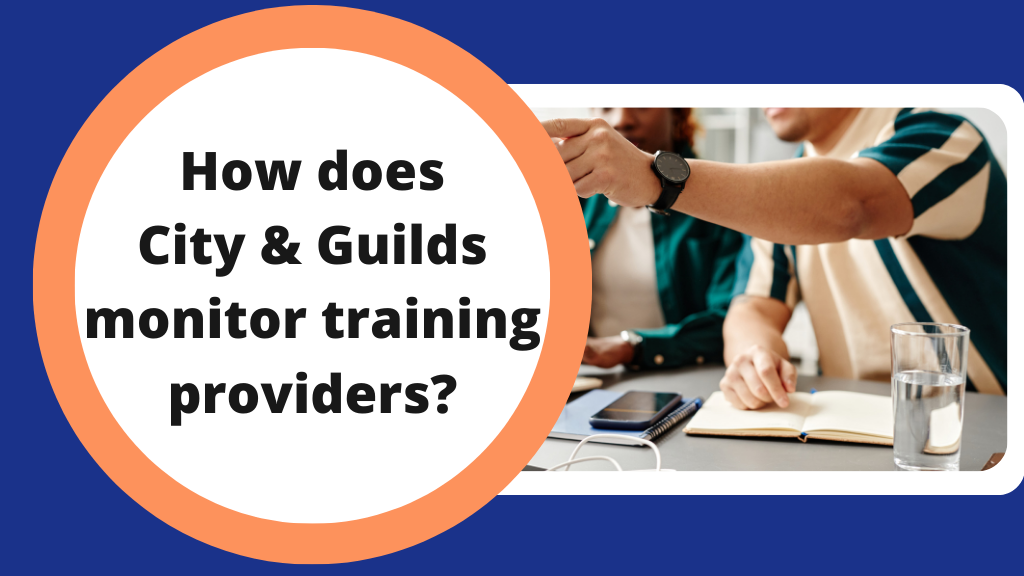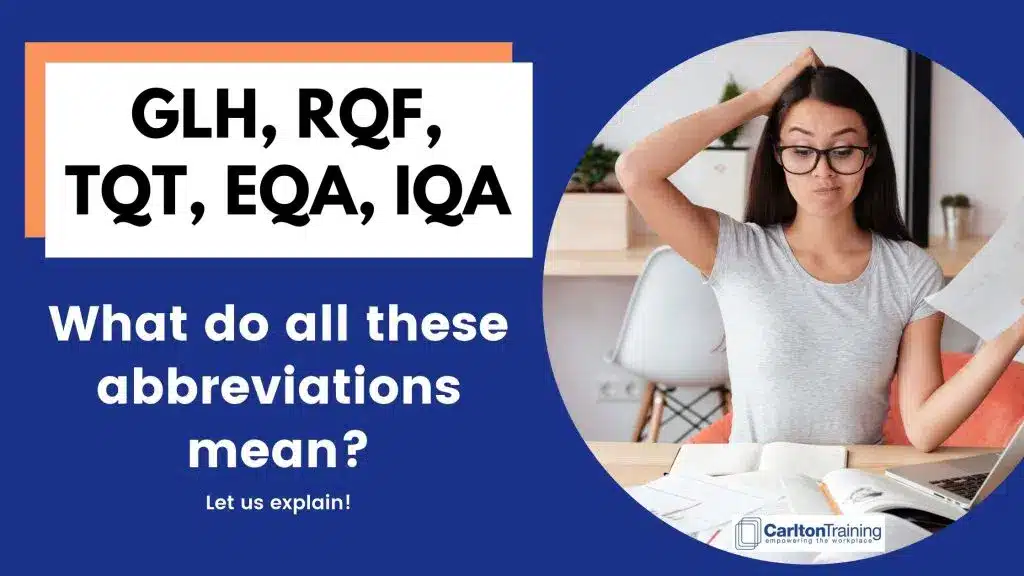February 29, 2024
How Does City and Guilds Monitor Training Providers?

Through the work of their External Quality Assurers (EQAs), City and Guilds monitor training providers to ensure that all training meets their required quality standards and uphold the value of qualifications they provide. But how exactly do City and Guilds monitor training providers? Here’s everything approved centres need to know.
What is City and Guilds?
City and Guilds is one of the UK’s oldest and most well-established awarding bodies. It is regulated by The Office of Qualifications and Examinations Regulations (Ofqual), giving it the right to issue regulated qualifications to candidates who meet certain requirements. These qualifications appear on the official Ofqual register, which enables anybody to see what these qualifications are and find detailed information about them.
Ofqual, often referred to as the “exams watchdog”, is a government organisation that regulates qualifications to make sure that they keep up to standards and are awarded fairly.
In simple terms, this means they ensure everyone who has met the requirements to gain a qualification actually receives one, and everyone who hasn’t met the requirements does not.
Ofqual regulates all the qualifications which appear on its register, and these qualifications are offered by awarding bodies like City & Guilds.
Despite the impression you might get from the news, qualifications are often awarded based on more than just exams, and City & Guilds qualifications are typically earned through various non-exam assessments.
However, awarding bodies don’t teach, train or assess people directly. Instead, they approve training providers and employers to do this, and these are known as “approved centres”. Approved centres include colleges, training companies, trade bodies and educational institutes, and they carry out the training, teaching and assessments on behalf of the awarding bodies.
As you might expect with any situation where important qualifications are on the line, there is a advanced system of monitoring and checking to make sure that things are done correctly.
Becoming an Approved Centre
The first stage in the qualifications-monitoring framework starts when a training centre applies to the awarding body to be approved to offer qualifications.
Understandably, they don’t just let anybody become approved, and there is a process to guarantee the organisations they approve are suitable, as these centres will be the public face of City & Guilds to their candidates.
A centre will complete the initial application form to make sure that they are suitable, allowing City & Guilds to contact the centre and discuss their situation and the requirements. This organisation can then make its formal application to become a centre, and once this has been completed, the first stage of monitoring starts. City & Guilds will allocate an External Quality Assurer (EQA), also known as a Qualification Consultant, to visit the centre and review their application. They will check that the centre has the facilities and staff needed to operate to the standards required and will advise and support the centre as they starts their journey towards offering accredited qualifications. Typically, if all goes well, the centre will gain its official approval, be able to call itself a City & Guilds centre and begin enrolling people for training. However, this certainly isn’t the end of the monitoring process!
External Quality Assurance (EQA)
At the heart of the monitoring process is External Quality Assurance. External Quality Assurers are experienced professionals appointed by City & Guilds to oversee and support quality assurance processes on a continuing basis. Their role is multifaceted and pivotal in maintaining the standards required of any centre offering vocational education and training.
Once a centre is approved, ongoing monitoring will continue to take place. EQAs do this by scheduling regular visits where they carry out activities such as:
- Checking that facilities are still suitable.
- Assuring that suitably qualified staff are at the centre, including trainers/assessors and the centre’s own Internal Quality Assurer (IQA).
- Confirming that the assessments are being carried out correctly, so that only candidates who have met the standards are passed.
- Making sure that enrolments, assessments and results are correctly recorded.
How often does EQA monitoring take place?
Like many awarding bodies, City & Guilds judge based on their risk assessment of the centre, which determines how often EQAs monitor them.
New or inexperienced centres may be judged as a medium risk. They may have everything set up to run the courses but need more experience for their assessing and internal quality team to be confident they can continue without such close supervision.
A medium risk rating, or similar, means that the centre can enrol, train and assess candidates but can’t directly pass candidates without oversight from the EQA. This ensures the qualifications are appropriately issued and allows the centre to gain experience.
This rating often also includes an ‘action improvement plan’ detailing what the centre needs to do to reduce its risk rating. This usually follows the SMART principles, which contain specific, measurable, achievable, relevant, and time-bound actions to take, making it straightforward for the centre to follow. Typically, these requirements include improving staff skills and training, better documentation of learners and their progress as well as increased sampling by the centre’s IQA.
How can a centre change its EQA rating?
By following the action improvement plan set by the EQA, centres can progress to a ‘low’ risk rating so they can enrol, train and assess candidates and directly pass them for qualifications. This does not mean the monitoring process is over, as monitoring is ongoing with regular checks, visits and sampling carried out on all centres.
However, with a ‘low’ risk rating, centres can expect more independence and freedom as they are trusted to deliver excellence in training and learning.
EQA visits will still occur, but the centre can expect the volume and intensity of checks to decrease. If the centre is found to be lacking in any areas relating to the City & Guilds requirements, then it’s possible that the risk rating could be revised upwards. This would come with more restrictions on its activities and much-increased scrutiny and action plans. However, this is a rare event.
Next Steps
Are you at a City & Guilds centre or a centre with any other Awarding Body? Do you want to increase your chances of becoming an approved centre? At Carlton Training, we provide online courses for trainers, assessors and Internal Quality Assurers. Contact our friendly team today for more advice on the best assessor qualification for you.
Next ›‹ Previous
Back to Blog








